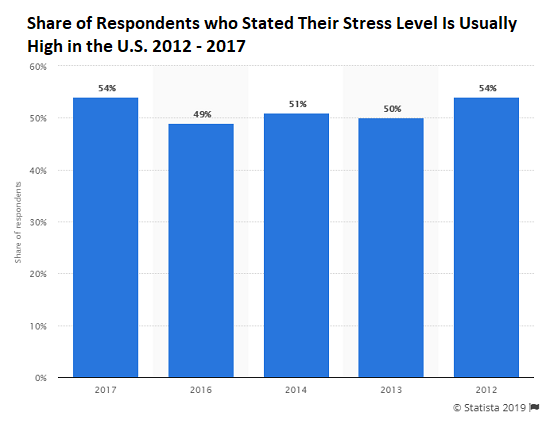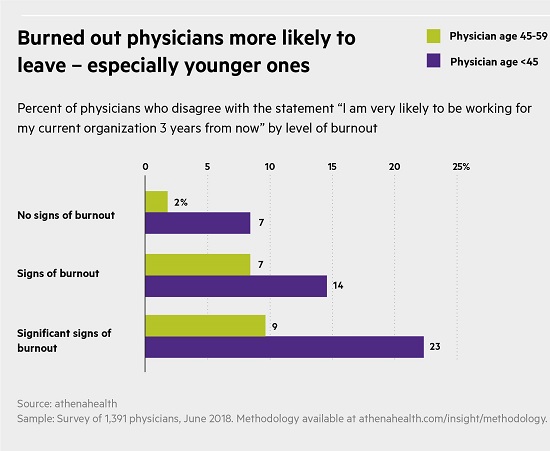We have three basic ways to counter the destructive consequences of stress.
We have all experienced the disorientation and "brain freeze" that stress triggers. The pandemic and the responses to the pandemic have been continuous sources of stress, i.e. chronic stress, which is the pathway to burnout, the collapse of our ability to cope with the burdens pressing on us.
Authorities keep promoting a bogus "recovery" narrative. The disconnect between what the authorities are claiming and what people are actually experiencing is widening, and these unbridgeable contradictions lead to meltdown. No wonder more and more people are "losing it" as their neural circuitry melts down under the strain of synthesizing what they experience (crisis) and what they're told (the "recovery" is already glorious and getting better every day).
In
Survival+ I call this process
derealization as our lived experience is derealized (dismissed as not real) by official spin and propaganda.
Research has illuminated how stress disrupts the default hierarchy of the brain. In the absence of stress, the neocortex-rational-mind functions suppress the more primitive subconscious signals of aggression, hunger, etc. in order to concentrate our effort to complete some planned activity.
This helps explain the natural "fight or flight" response we feel when suddenly confronted with danger or potential danger, but more importantly it illuminates how we lose the ability to analyze circumstances rationally when we are "stressed out." Once our rational analytic abilities are shut down, we are prone to making a series of ill-informed and rash decisions.
This has the potential to set up a destructive positive feedback loop: the more stressed out we become, the lower the quality of our decision-making, which then generates poor results that then stress us out even more, further degrading our already-impaired rational processes. This feedback loop quickly leads to "losing it" and/or burnout.
In pondering human development over the past 20,000 years of the transition from hunter-gatherer groups to modern life, it seems self-evident that stress was likely to be resolved in relatively short order in the hunter-gatherer lifestyle: everyone was known to everyone else, conflicts had to be resolved simply because the group survival depended on it, and most threats could be fended off with vigilance, weapons or left behind by a few hours of fast walking.
Contrast the ancient environment that selected for this stress/conscious self-control feedback with modern life: in the modern urban life and work environment, stress is more or less constant and our ability to resolve stressful situations is limited because we control very little about the macro social-economic waters we're navigating.
Though this particular article focuses on short-term stress, there is growing body of evidence that chronic stress has a number of subtle and destructive consequences. In addition to the common-sense connection between chronic stress and hypertension, there is evidence that obesity is also related to stress-caused conditions such as inadequate sleep and chronic inflammation. This makes sense as the stress hormones erode the immune system's responsiveness.
Behaviorally, stress breaks down self-control, so it is no surprise that stress leads to bingeing, addictive behavior, impulse buying, etc.--all "knock-on" effects with negative consequences.
Chronic stress permanently degrades our ability to rationally analyze and plan, and so we act irrationally or erratically, as we are no longer able to stick to a conscious plan of coherent action. With the rational mind and self-control centers permanently suppressed, we are prone to withdrawal and passivity, "sleepwalking" though life. This may help explain Americans' remarkable passivity as their civil liberties are taken away and their financial insecurity increases.
Many of the features of post-traumatic stress disorder (PTSD) are now visible in "everyday Americans," and an understanding of how stress erodes rational thought and self-control helps explain why.
Even before the pandemic, over half of Americans reported that their stress level was usually high. (see chart below) We can guess that this already high percentage is now considerably higher, given that 32 million people are receiving some form of unemployment and thousands of small businesses have closed.
Medical professionals were already burning out before the pandemic. (see chart below) What the status quo must cover up is the reality that the structure of our winner-take-most socio-economic system makes it unlivable, even for professionals (or especially for professionals, in many cases).
We have three basic ways to counter the destructive consequences of stress:
1) Develop positive physical and mental responses via discipline, habit and practice (for example, regular exercise, gardening, etc.).
2) Turn off the mainstream media and social media (i.e. eliminate deranging, destructive distractions).
3) Stay focused on our plans. The simpler and more positive the plan, the more likely it is we can stay focused on it in stressful circumstances.
I laid out a context for my own planning in May.
Recent Podcasts:
NOTE: Contributions/subscriptions are acknowledged in the order received. Your name and email remain confidential and will not be given to any other individual, company or agency.
Thank you, Jessica S. ($5/month), for your marvelously generous pledge to this site -- I am greatly honored by your support and readership. | | Thank you, Eugene R.J. ($5/month), for your magnificently generous pledge to this site -- I am greatly honored by your steadfast support and readership. |



